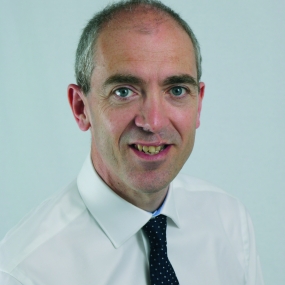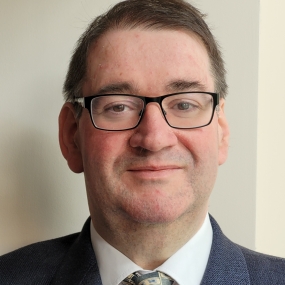eFONAr: Emergency Front of Neck Airway Registry
A national collaborative project with the Difficult Airway Society and the Centre for Research and Improvement (RCoA).
The Emergency Front of Neck Airway Registry (eFONAr) will collect data on cases of eFONA from October 2024. The project is a collaboration between the Difficult Airway Society (DAS) and the Royal College of Anaesthetists Centre for Research and Improvement (RCoA CR&I) and follows on from the work of NAP4, which studied Major Complications of Airway Management in the United Kingdom.
Reporting a case to eFONAr
Please call the Royal College of Anaesthetists on 020 7092 677 to speak with the eFONAr Research Project Coordinator, who will provide you with a 5 digit case identifier.
Then please access the eFONAr webtool to report your case.
Please note that the webtool will be opening shortly. Should you already have a case please use this time to collect the necessary data and check back here in a few days. Data fields can be found here.
The 4th National Audit Project (NAP4) of the Royal College of Anaesthetists and the Difficult Airway Society was the largest service evaluation of adverse events in airway management. Results of this study from March 2011, included 58 cases of eFONA out of approximately 3 million surgical episodes.
Whilst the need for the creation of an emergency front of neck airway is rare the potential for an adverse outcome (brain damage or death) is significant should this occur. However, collecting information about and learning from these events is difficult given their rarity. Often the experience is gathered on individual case reports of success and failure. A randomised controlled trial in this area will never be possible due to ethical implications, therefore this national registry offers an opportunity to safely gather this information.
Multiple factors are thought to impact on the need for and success of eFONA. These include patient characteristics (e.g. age, body habitus); the context (e.g. emergency situations); the operator (e.g. seniority, training); the preceding events (e.g. airway assessment and management); techniques used (type of eFONA equipment), team-work and human factors. This registry will allow these cases to be examined fully and systematically to identify significant themes common to some or all cases, areas of good and inadequate practice and make recommendations that will allow clinicians working in anaesthesia, intensive care and emergency medicine to save more lives in the future.
Collecting data from a cohort of cases will allow practice in this field to be improved and save lives, resulting in decreasing the risk of harm to patients by maximising the success rate of this rare but high-stake event therefore allowing more patients access to surgery safely for its primary purpose.
This will be a voluntary, anonymously reported, de-identified cases involving emergency front-of-neck access in the secondary care setting. Data will be reported by clinicians using RedCap interface. These reports will be reviewed by a panel every 3-4 months, to generate a systems-based analysis of the events and decision-making in the process of eFONA.
Who should be reported?
- All cases where an eFONA procedure has been attempted or performed, successfully or unsuccessfully.
- All patients should be included regardless of age.
However, any non-emergency cases front of neck access should not be entered.
If in doubt about whether a case is eligible for reporting, please contact the eFONA link person (efona@rcoa.ac.uk), they will put you in touch with a moderator so you can discuss the clinical details.
How do I get access to the registry?
If you have an eligible case, please contact the eFONA link person on 020 7092 1677 to be issued with an anonymous data entry code. This will allow you to access the registry at www.efonaredcaplink.com
How long will it take me to complete the data entry?
We anticipate it will take 45-60 minutes. We advise familiarising yourself with the data set prior to filling in the registry, this will ensure you have all the information required.
We recommend contacting your local airway lead, who can offer further assistance with the necessary information and how to find this. This is especially important if the clinician entering the data was not present for the entire event, such as arriving after the start of the eFONA event and therefore may not be aware of preceding events. In this situation, we suggest that all those involved in the eFONA event should gather and complete the registry as a group, as this will help to capture a greater amount of information.
Do I have to complete the entry in one go?
Ideally, we would like participants to complete data entry in one go however, we understand that this may not always be possible. During data entry it is possible to save the data and send yourself a unique identifier link which will take you back to the last entry. Please note the email address entered is not stored on RedCap in line with ethical approval.
What shall I do if I have lost my unique identifier and can’t find the link?
The registry is set up so that the panel cannot reverse-identify individual entries/cases. However, the efona link person is not associated with the review panel and can potentially corroborate the narrative to re-issue the link. Should you not wish to do this, you can always ask for a new entry code. Upon case review, the panel will discard duplicate entries.
How will the data be reviewed?
The panel will review each case as a small group, with the whole panel then reviewing all the cases within the (three-month) period together to compare and contrast across cases, and to seek consensus on key themes within and between the systems and subsystems for individual/groups of cases.
This will help identify potential factors that could be improved to achieve better outcomes by identifying patient characteristics, human factors, guideline compliance, etc. and to be able to provide evidence-based recommendations for practice at national levels.
Do I need to get patient/family consent? Why not?
A major obstacle for this project was ethical approval as the study is designed to collect voluntary, anonymously reported, de-identified cases of emergency front-of-neck airway events. Seeking consent from individuals involved risks creating bias in the registry, as well as allowing identification of the reporter. Therefore, no explicit patient consent is sought due to the nature of the event and its potential impact on data collection.
To support our project, we sought engagement from the RCoA Patient, Carer & Public Involvement and Engagement group. Feedback from this group highlighted the strengths and need of this project as the formation of an emergency front-of-neck airway (eFONA) is a major complication of anaesthesia with significant implications for both the patient and the medical team involved. They appreciated that due to the rarity of eFONA, learning at the individual or local level is likely to be very limited. Most of the group members felt that the severity of eFONA and the recognised need for learning justifies the proposal to collect data without explicit consent from the patient (or consultation with a close friend or family member).
Can I get involved? How can I help?
If you work in England or Wales, then the airway leads at each trust will act as local leads for data. Although no local R&D approval is required, we anticipate that local leads will help provide pastoral support to clinicians reporting these potentially traumatic events as well as signposting to the registry should these events occur within your department to help capture maximal data. We need your help to raise awareness of this project! Advertising materials can be found here.
Can I discuss a case clinically with someone?
We advise discussing the case with your local airway lead and following the governance process. Additionally, if you would like to discuss the clinical details, it is possible to speak to a moderator anonymously. To do so, please call Laura Cortes (eFONA link) for further details.
I feel distressed by the eFONA and surrounding events. Is there someone I can speak to about it?
Participating in an eFONA event can be a difficult and distressing experience. If you would like to speak to someone anonymously for support. This is available via efona@rcoa.ac.uk who can provide further details.
The eFONAr study documents can be found here.
A poster to advertise the eFONA registry can be found here.
If you have had a case of eFONAr please call the RCoA Research team on 020 7092 1677 to be provided with a unique identifier to report your case.
Then please click (LINK TO BE ADDED JAN '25) to report this case on the RedCap webtool.
Please send any questions to efona@rcoa.ac.uk
Meet the eFONAr team

(M.B., B.Chir., M.A., M.R.C.P., F.R.C.A., D.M)
Iain Moppett is professor of anaesthesia and perioperative medicine at the University of Nottingham and an honorary consultant anaesthetist. He is the director of the RCoA Centre for Research and Improvement.
He was awarded the William Farr medal by the Worshipful Society of Apothecaries in 2024 for his work improving care of older people needing surgery.
He has served on the editorial board of the British Journal of Anaesthesia and is currently an editor of Anaesthesia.
Iain's primary academic interests are in improving outcomes for older patients undergoing surgery and in perioperative patient safety. This work has previously focused on risk stratification, impact of perioperative care process and clinical trials in hip fracture, and more recently has been investigating delirium and postoperative cognition. His safety work encompasses ergonomics of anaesthetic practice and the risks associated with surgical Never Events.
Iain is a member of the NICE Quality Standards group for hip fracture and a regular member of the British Orthopaedic Association Hip Fracture peer review team. He has also provided external reviews of Never Event investigations to regional hospitals.

Alistair McNarry is a consultant anaesthetist in Edinburgh with an interest in anaesthesia for head and neck surgery. Alongside this he is committed to improving safe airway practice whether that’s in relation to videolaryngoscopy, apnoeic oxygenation techniques (THRIVE etc), jet ventilation or flexible bronchoscopic intubation.
From 2016-2023 he was the first RCoA-DAS Airway Leads Advisor a role where he continued to pursue the NAP4 quest for more evidence on the best eFONA technique. [Recommendation: Further research focused at identifying the success rates and optimal techniques of cannula cricothyroidotomy is required. P113 of the NAP4 Report].
In his spare time, he has contributed to over 50 publications and book chapters (including three sets of DAS Guidelines) and is an associate editor for the European Journal of Anaesthesia.
This journey of establishing what we needed to know and how best to gather that information has been slightly longer than originally intended and has required the input of many airway managers from across the UK and around the world but without whose help (and that of the team at the CR&I) this project would not exist today.

Parineeta is an ST7 anaesthetist based in Manchester. As CR&I fellow, she served as the lead for eFONAr. Her role involved collaborating with the research team and the Difficult Airway Society to launch the project. This included navigating complex ethical approvals, consolidating the dataset, and promoting the registry. Parineeta's interests include perioperative medicine, complex airways, and patient safety.
Special thanks to
- Natasha Jimbu for her programming expertise
- Laura Cortes and Christine Taylor at the RCoA CR&I
eFONA Panel members
- Dr Imran Ahmad
- Dr Ravi Bhagrath
- Dr Clare Conlon
- Prof Tim Cook
- Dr Gunjeet Dua
- Dr Kariem El-Boghdadly
- Dr Andy Higgs
- Dr Paul Hunt
- Kate Rivett
- Dr Barry McGuire
- Dr Fauzia Mir
- Prof Ellen O’Sullivan
- Prof Anil Patel
- Dr Anette Scholz
- Dr Sneh Shah
- Dr David Vaughan
- Dr Patrick Ward
